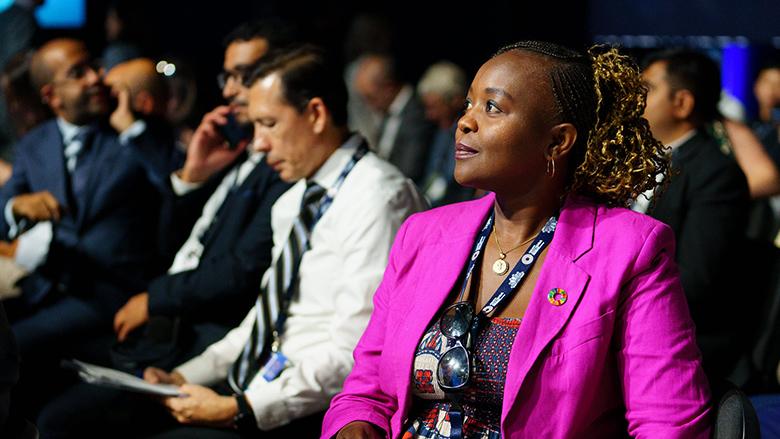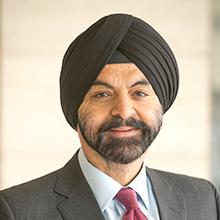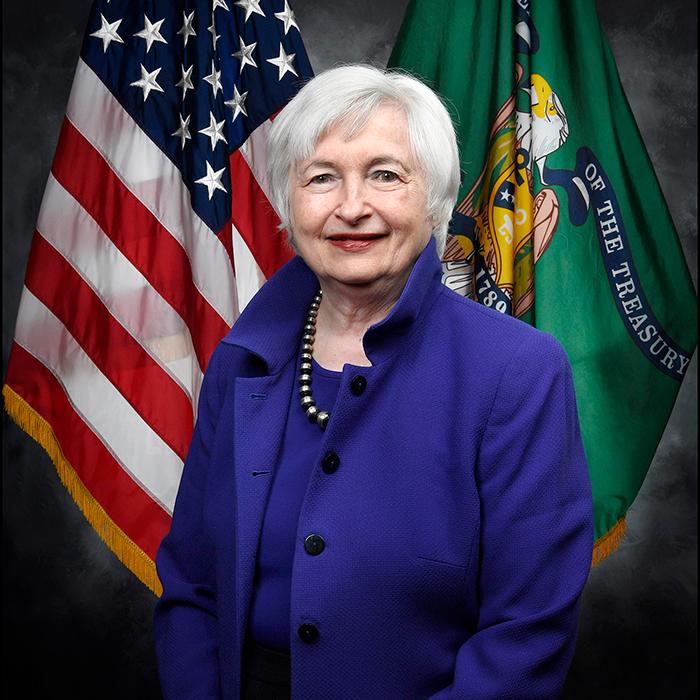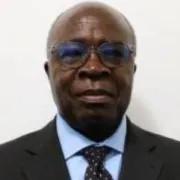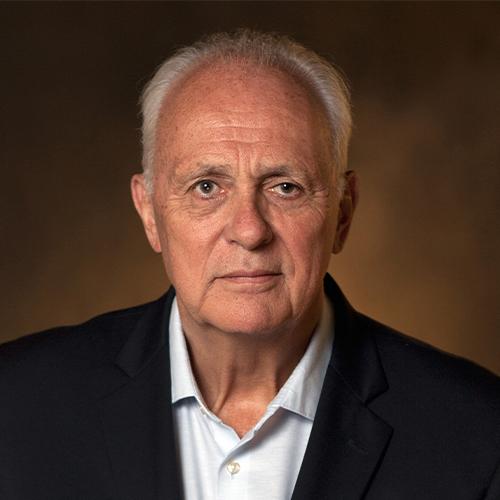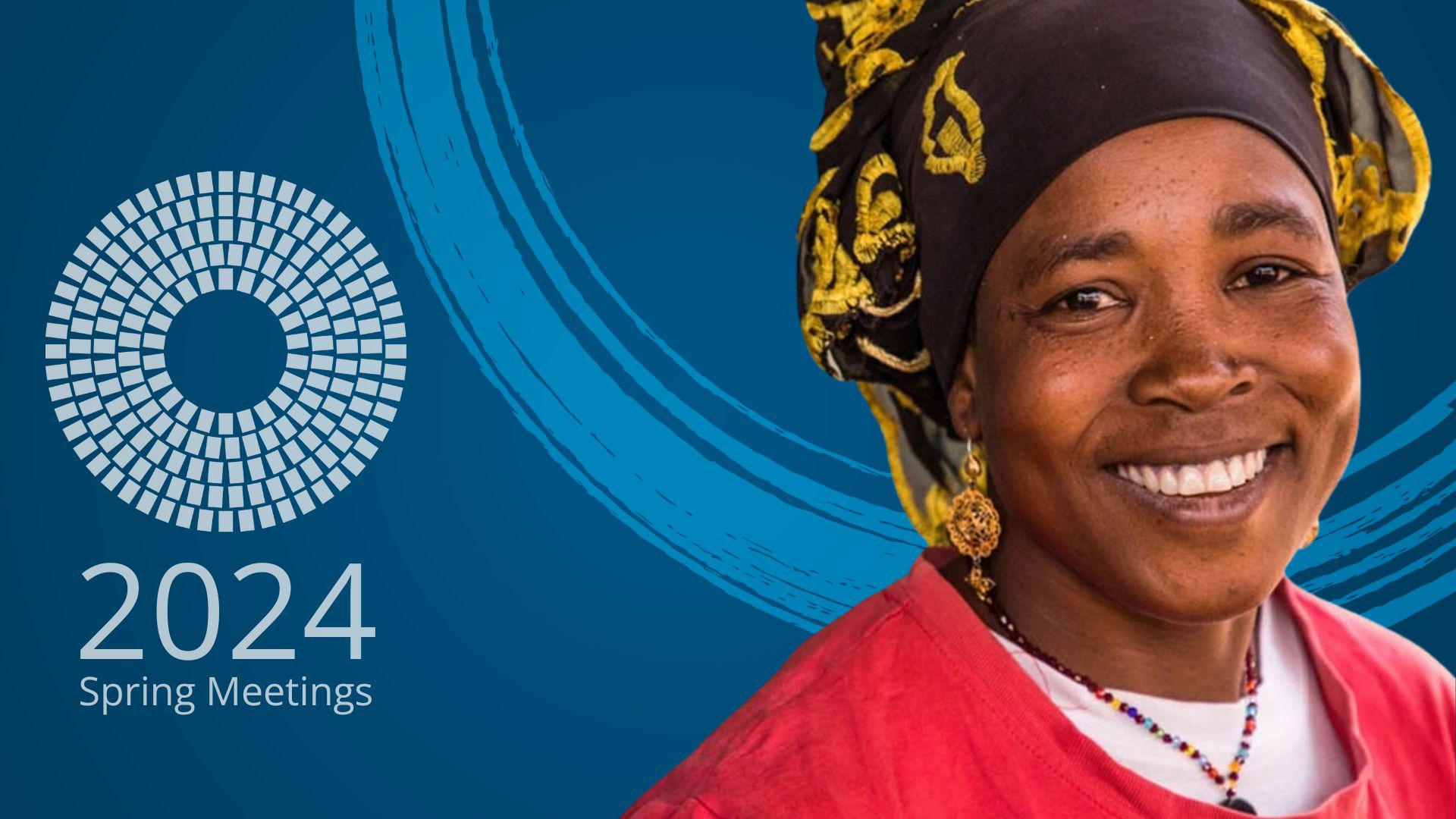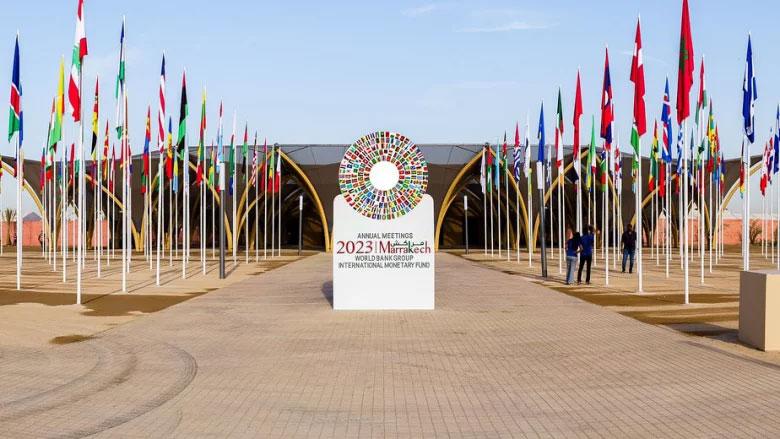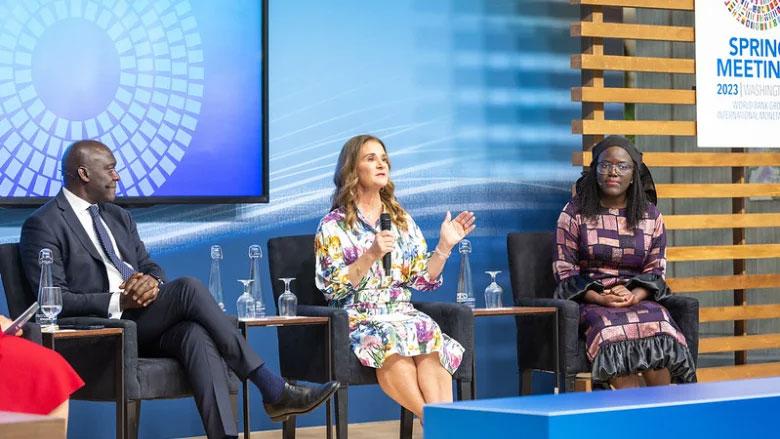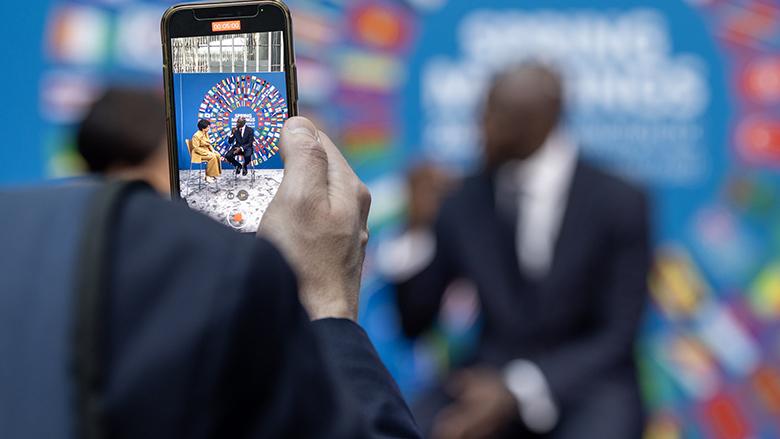[Music playing]
[Mark Malloch-Brown] Okay. Hello and welcome to the 2024 Annual Meetings of the World Bank Group. I’m Mark Malloch-Brown, and I’m pleased to be your moderator today. Over the next 30 minutes, we’ll be discussing the journey that the World Bank Group has undertaken to evolve into a better, bigger Bank. We know that the world is facing a host of intertwined challenges from climate change, pandemics, fragility, geopolitical tensions, to debt distress. The upcoming panel will discuss the reforms that the World Bank Group has undertaken to be more responsive to countries dealing with these challenges. Have they been successful? And are the countries starting to feel the change? Before we welcome our full panel, we’d like to invite US Secretary of the Treasury, Janet Yellen, to start us off with a few opening remarks. Madam Secretary.
[Applause]
[Janet Yellen] Thank you, Mark. Two years ago, on the eve of the Annual Meetings, I called for the evolution of the Multilateral Development Banks. Today, I’m glad to be here with President Banga, Lord Malloch-Brown, and Minister Musokotwane to lay out what we’ve achieved and to reaffirm our commitment to sustaining momentum. I called for evolution because as we began to exit COVID recessions around the world, I and many others saw that the stakes were high. There had been insufficient progress or troubling reversals on many of the Sustainable Development Goals, and we faced urgent global challenges that could quickly unravel hard-earned development gains and diminish prospects for the future. From climate change to pandemics and other global health emergencies to fragility, conflict, and violence. I also had a strong conviction about the vital role that the MDBs could play at this crucial moment. Over decades, they’ve responded to their shareholders, built trusted relationships with developing country governments, and developed and deployed a wide range of tools, from financing, to policy support, to technical assistance. I’ve gotten to see their impact firsthand in my travels as Treasury Secretary. From an education data processing center in India, recognized for driving improvements in educational outcomes, that I visited with President Banga, to a cutting-edge University in Morocco, where I marked the one-year anniversary of MDB evolution during last year’s Annual Meetings. I saw, too, however, that the MDBs needed to change to meet the nature, urgency, and scale of today’s challenges. They could focus more on global public goods because achieving development outcomes at the country level is inextricably linked to addressing global challenges. They could better utilize their balance sheets and harness private sector resources. They could act faster and work more as a system. My call resonated widely because despite a range of perspectives on what exactly was needed, there was overwhelming consensus on the need for change. Very quickly, diverse stakeholders stepped up. President Banga and leaders across the MDB system led. Governments, non-governmental organizations, research institutes, inclusions, and the private sector became involved, helping shape evolution and then continuing to support it. Successive G20 presidencies kept MDB reform high on the agenda. Staff across the MDBs bought in and started taking forward the hard work of implementation. We focused the evolution agenda on four key areas in need of change: mission, incentives, operational models, and financial capacity; and we’ve seen progress in each. The World Bank has a new vision and mission, “to create a world free of poverty on a livable planet,” and regional development banks have shifted missions as well. There are new incentives like updated corporate scorecards that focus the banks on outcomes, impact, and mobilizing private capital. World Bank projects are moving more quickly to approval, and IDB Invest has a new originate-to-share model to bring in private sector investors. We’ve also drastically increased financial capacity. Across the MDBs, responsibly stretching balance sheets and innovative measures will enable 200 billion dollars in new lending capacity over the next decade. With a potential additional nearly 160 billion from other already identified measures. Let me provide some examples of what these changes actually mean for countries around the world. 19 countries have adopted a new option that allows them to repurpose World Bank funds for emergency response so that they can better support their citizens in times of crisis. For example, they could shift resources for a long-term infrastructure project to rebuild critical infrastructure after a natural disaster. Other countries are taking advantage of innovative tools like climate resilient debt clauses. In July, St. Vincent and the Grenadines chose to delay its repayments to the World Bank for two years, freeing up funds to support disaster response when it mattered most. Making good on lessons learned from the COVID-19 pandemic, improved communication and coordination across the MDBs and with other institutions will enable faster and more effective responses to global health crises. The World Bank is working with the World Health Organization and the G20 Joint Finance Health Task Force to track financing commitments to mpox response so that resources can be connected to needs. The Bank, the IMF and the WHO, have just announced how they will jointly help countries access resilience and sustainability trust resources to close pandemic preparedness gaps. Outside of crisis contexts, countries are increasingly addressing the underlying drivers of fragility and conflict, such as in the case of an African Development Bank loan to the Democratic Republic of Congo to invest in increasing agricultural productivity in communities that had been displaced. Efforts to drive private capital mobilization are also starting to yield results. New data from the Global Emerging Markets Risk Database enables an investment fund focused on the SDGs and climate finance to attract over a billion dollars in financing, including from a major Dutch pension fund. The World Bank’s push to mitigate foreign exchange risk through more local currency lending is leading to projects like a 200-million-dollar financing package for a telecommunications company in Senegal that will help increase digital connectivity. And the Asian Development Bank’s placement of more private sector-focused staff in country offices will facilitate identifying new opportunities for private sector engagement. Taking inspiration from these and many other examples, we will keep moving evolution forward this week and in the coming months. The SDGs challenge us to eradicate extreme poverty, strengthen health systems, and protect the planet. President Banga has set ambitious goals, such as to work with the African Development Bank to bring electricity to 300 million people in sub-Saharan Africa by 2030. To meet these goals and deliver enduring change, we need to double down on implementation. This includes strengthening partnerships in the context of fragility, conflict, and violence, and embedding new ways of working to achieve climate outcomes and increased pandemic preparedness. We must also maintain focus on increasing private capital mobilization and using capital as efficiently as possible. The work ahead isn’t just for the MDBs to undertake. Shareholders must also play active roles. This is why the United States strongly supported capital increases for the EBRD and IDB Invest, a callable capital increase for the African Development Bank, and the largest ever replenishment of the Asian Development Fund. It’s also why we now intend to do all we can to deliver a robust policy and financial package for the upcoming IDA replenishment. We cannot turn back. Eighty years ago at Bretton Woods we created institutions that have shaped development outcomes around the world. Today, the MDBs are the best option for high-quality and transparent development financing at the scale we so desperately need. But the world has changed, and it’s incumbent on each generation to make sure these institutions change with it. I’ve been honored to be part of delivering on that charge over the past two years. And I believe that the work we’ve done and will continue to do will endure long after I and those here leave our current roles, through better, bigger, and more effective institutions that meet today’s most pressing challenges and pave the way for better outcomes for decades to come. Thank you.
[Applause]
[Mark Malloch-Brown] Thank you very much, Secretary Yellen. That was a wonderful overview of the changes that have taken place. I’m now pleased to welcome Minister Situmbeko Musokotwane, Finance and National Planning Minister for Zambia, and Ajay Banga, President of the World Bank Group. Ajay, I’m going to put the first question to you. You stepped into this role a little more than a year ago with an ambitious evolution process. How’s it going?
[Ajay Banga] It’s going just peachy. First of all, Secretary Yellen, thank you for the words. Most importantly, thank you for the encouragement and the push all along to work with your colleagues, and also with all of us together to get to where we’re getting. We’ve got the journey partly done, we’ve always got more work to do. Let me run through that in a quick way. She’s already covered the redefinition of our vision to include “livable planet.” The idea there was to expand the aperture of our way of thinking to include these crises that have become intertwined, which is climate change, and pandemics, and fragility, conflict, and violence. You cannot hope to defeat poverty without taking a more integrated view of these challenges. I think that encouragement is spot on. But we also added a focus on women and young people, and I’ll come back to that in a little while. Women, for the obvious reason of half the population, the opportunity it affords for our future. But young people, because of the number of young people coming through the demographic dividend pipe in developing countries, in the emerging markets, and the opportunity to get them gainfully employed to make our world a much better place. We’ll come back to that a little later. Then we worked on speed. 19 months was the average time for a project to go from starting to approval. We’re down to 16, headed to 12. We’ve got examples of five projects in health care, including in Zambia, in Africa, which got done in 100 days. We’ve got two countries that did it in 30 days. We announced the correspondence banking effort in the Pacific islands in under 10 months. The problem is we still got projects that are taking longer. We’ve got to get to 12 on the average. Simplicity. We’ve got 21 countries now where all parts of the Institution have one country representative. Our scorecard is now a combined scorecard for the whole Bank. It’s focused on output, not just input, meaning how many girls went to school, how many carbon emissions we avoided as compared to how many projects and dollars. I’m not saying we won’t focus on projects and dollars. I’m just saying we also need to keep an eye on output and outcome. And by the way, drill down in there by projects, so that people can look at what we’re doing by a project. Then we’ve got these collaborations with the other MDBs, and I want to add one specific one that I think is relevant. We have a digital platform now where all the MDBs can put a project into it and we can co-finance it together. We can discuss it together, co-finance it together, and that allows us all to benefit from working together as compared to making the country go through three hoops to deal with three MDBs to come to one place. There’re 100 projects going through that pipe right now. The first are just getting financed. I’m quite hopeful this will lead to a good outcome. In the same way, I think there’s a lot of work yet to be done on what we could do together with sharing each other’s practices. So EBRD and us have shared procurement practices for Ukraine, but we are very close with the Asian Development Bank to do a complete, if the board is approved for both, to do a complete sharing whereby their project due diligence will apply to us as well. When I was in the Pacific Islands, I was in Tuvalu in Fiji, and I came back and told Secretary Yellen some of this, I saw common projects we were financing, but the countries with limited capacity had to go twice through each of us to be able to get the project out the door. Two procurement systems, two KYC, two due diligences. We can fix this. It just requires the right processes. That’s all part of the simplification. The last thing I want to touch on, a couple of things, is private sector. I think Secretary Yellen has actually got the hammer on the right nail. There is not enough money in MDBs, in governments, in philanthropy to take on the challenges that our clients and our countries need. We have to get the private sector where it makes sense, where there is a pathway to see a profitable system for them. So, take renewable energy in the middle-income countries. If we know that solar and wind are cheaper per unit than fossil fuel, why is there not more investing going on in these countries? And it comes to five things, all of which we’re working on. The first is regulatory policy clarity. If I had that, I would be willing to invest as a private investor. These 300 million we’re reaching in Africa, the first thing we’re doing, 15 heads of state are coming to Tanzania end of January with their energy compact and what regulatory policy they’re going to change. They have to commit to that, to private sector and multilateral investors in those meetings. The second is guarantees, political risk guarantees. They’ve put together the guarantee platform across the World Bank Group and MIGA. Simplification and product work is going on. Our guarantees are already double of what they were a year ago. I think we’ve got a good opportunity for real growth there. Third is first loss. People would like IFC to take junior equity, and in some cases, that actually is a smart thing to do. The problem is if you actually book the loss, I got to go back to her for a capital injection. That’s not a pleasant experience. I have to find a way to create a shock absorber in the Bank, equivalent of a first loss fund, which we’re calling the Frontier Opportunities Fund, which we will fund from our own retained earnings to begin with, but then hopefully good philanthropic organizations like the ones you know to help us get some funding for them. Then the last item, which is very interesting to me beyond effects, is creating an asset class in this space. I believe if we can package these loans, standardize them, package them, get a rating agency wrap around them, we could create tradable securities over the coming 5, 7, 8 years. What we have managed to do is to get Doug Peterson, the CEO of Standard & Poor’s, to agree to drive that work for us, along with BlackRock and a bunch of pension funds and banks. I think we now have a hitting chance over the coming years to make this big. So, think of it as vision and mission, simplicity, speed, working better with our knowledge bank to add capacity in countries, and then this whole issue of the private sector. Janet covered the capital adequacy, so I’m not going there.
[Mark Malloch-Brown] Ajay, it’s incredibly impressive set of reforms, but Minister, the real proof is, does it come together at the country level? For you as the Minister in Zambia, are you seeing these changes flow through?
[Situmbeko Musokotwane] Thank you very much. Let me start by applauding the global leadership, the leadership in the Bank for this initiative that has started to reform the multilateral institutions. It is important for us because for decades, for many years, it was clear there was a problem, but it was always very easy for the problems to be attributed to the recipient countries. They are a problem, but there was no finger pointing back to the institution and saying, “What is wrong with us?” Those questions are now being asked, and we welcome that. Coming specifically to your question, are we seeing the results? Yes, I think we are seeing the results, and I want to categorize those at two levels. The first one being, is it a Bank that is more listening now than before? I think we are seeing that. We are engaging, discussing and agreeing. I think that by itself is something that is very positive, away from the old culture of “We know it all, this is what you are going to do. If you don’t do this, there’s no money for you.” I think that is changing. I can only encourage the Bank to make sure that there’s also accountability. Let me just say that the officers that you see here, especially in the past, when they were in our countries, they were intimidated, it’s like take it or give it, but that is changing, and I want to commend the leadership and the management for this change. Coming now the specific issues, certainly in the case of Zambia, we’ve seen a Bank that was very responsible to our issues of debt and sustainability. You recall in the past few years, Zambia was known to be a country that was the first defaulter, and the Bank, together with your assistance institutions across the road, you came in very strongly to support Zambia, and happily, we’ve done a lot, we’ve made a lot of progress on that. Beyond that, we have also had the unfortunate situation of facing a drought that we’ve never seen in our living memory. And the Bank and the Fund, you have come out very strongly to support us. I think this facility you call the... Something to do with the emergency response. I can’t remember the exact wording. It was approved very quickly. Very quickly, that it is something that I still can’t believe, and I thank you so much, President Banga, without the support of the World Bank in this crisis… Madam, that Victoria Falls you saw, where there was tons and tons of water falling. If we went there now, you can actually have a lunch down there because there’s no water. That’s how serious the crisis is. And the World Bank has come very strongly to support us. As I conclude, I think that this is something that we can build upon. It shows that when there’s determination, these institutions can change, and change for the better. So later on, I will be able to make some remarks on how do we capitalize on this changing environment for us to do even better as a Bank, as clients.
[Mark Malloch-Brown] Okay, thank you very much, Minister. We’re going to slightly attenuate the questions I’d planned just because of timing and go, if I may now, to you, Secretary, with the wars and rages, conflicts around the wars and conflicts raging. Set back, frankly, in poverty reduction and the whole challenge of climate change. What in that rather perverse scenario, where do you find hope for the future? I apologize for changing the order. Yeah.
[Janet Yellen] Let me start by saying I do feel hopeful about the future, and I think it springs from my belief that even though we face enormous challenges, such as the ones you listed, we actually have the capacity to address them. I think what I see every day, I go into Treasury, and I’m motivated by my peers who are devoted to developing new solutions, new approaches, and are able, working together productively, to come up with great ideas we’ve been able to put into action. When I talk with my peers from around the world, President Banga, Minister Musokotwane, and others who face difficult policy trade-offs, but what I see is they are working very hard and constructively, and delivering very meaningful change. What I find hopeful is that I see among us a common sense of purpose. The goals that Ajay articulated for the Bank to reduce poverty, spur sustainable development on a livable planet, these are goals that we widely share. We may have some differences in views about the details of how to approach this, but we understand we need to work together. These are critical challenges, and there’s a strong belief in our collaboration in the fact that it can bear fruits. Finally, we are seeing significant accomplishments. An example is that 36 countries have graduated from IDA. Ten of those are donors to IDA20, and we expect with robust IDA21, the number is going to grow. 20 countries have graduated from IBRD, and middle and upper-income countries we see are reducing their reliance on the Bank for borrowing and increasingly looking to the Bank for technical assistance and for its knowledge, but they do have access to capital markets and no longer need the funding. I’m encouraged to see greater collaboration among the Multilateral Development Banks, as President Banga mentioned, and I think there’s more we can do there. I think there are a lot of reasons to be hopeful. I feel hopeful, and I believe we have accomplished a lot, and there’s more to come.
[Mark Malloch-Brown] Look, thank you very much, Secretary Yellen. If I might say, as someone who’s been involved in the Bretton Woods system for 30 years, to have a US Treasury Secretary with your understanding of the issues and your commitment to the issues has been a real treat, if I can say that. I apologize to both our other panelists that time has expired on us. But let me just say, listening to you both, and listening to the secretary, it is this combination of big imaginative jumps which needs the support of governments. But also, the day-to-day hard work of leadership, of fine-tuning the tools you have. Ajay, I thought your example from your Pacific Islands trip of two procurement systems to get the two-halves the same loan is a classic example of where simplification can deliver dramatic results for the borrowing country. Minister, I mean, Zambia has grappled with what we all know has been a slow international response to your debt crisis, but what we hear are the green shoots of the Bank and the Fund using the tools they have to try and provide you the transition support you need. I think we end this session having learned a lot having caught up on what has been done by Ajay over these first year plus in office. I did just want to tell you all that for those of you who want to see this again or have friends who missed it, it is available for replay #WBGMeetings. Hashtag, please before that. We’d love to hear from you and thanks for joining us. Again, thank you to our guests.
[Applause]
[Music]


